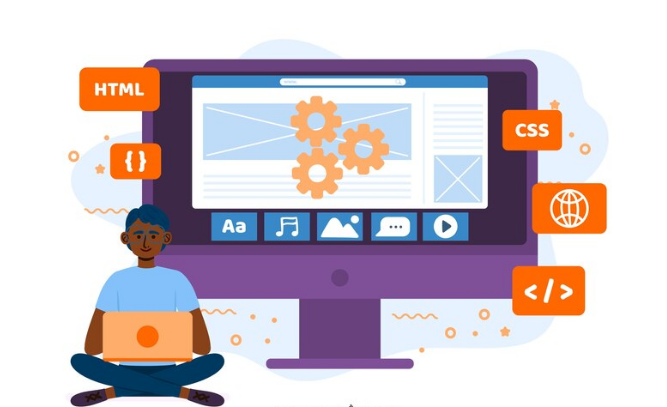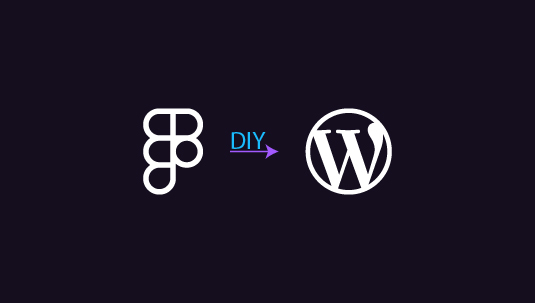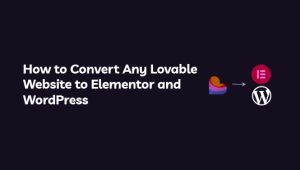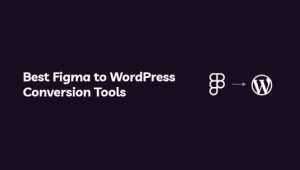Designing a website has never been more accessible than it is today. With tools like Figma making design easier and WordPress offering flexible content management, businesses and individuals alike can create stunning websites with less technical expertise than ever before. But when it comes to turning your Figma to WordPress, you’re faced with a critical choice: Should you do it yourself (DIY) or hire a professional agency?
This article will explain the pros and cons of both approaches, helping you make an informed decision. By the end, you’ll understand which option better fits your project, timeline, and budget.
Table of Contents
ToggleWhy Use Figma and WordPress?
Figma is a powerful design tool favored by many web and UI designers for its intuitive interface and collaborative features. It allows you to create visually appealing web designs, including prototypes and wireframes, without needing advanced coding skills.
On the other hand, WordPress is a content management system (CMS) known for its flexibility, scalability, and ease of use. With thousands of plugins and themes available, WordPress can turn almost any web design into a fully functional website.
The challenge lies in the transition: moving your Figma design to WordPress requires converting static designs into interactive, responsive websites. This can be done in several ways, but the main decision is whether to do it yourself or hire a professional agency.
Read: Best Tips and Tricks for Figma to WordPress Conversion
Not Sure Whether to Tackle Figma to WordPress Conversion Yourself or Hire an Agency?
Let’s make it easier for you! Contact us today to explore the best solution for your project and ensure a smooth, hassle-free migration.
- Get Started
Figma to WordPress: The DIY (Do it Yourself) Route
For those with the time and a little technical know-how, converting your Figma design to WordPress can seem easy. But what are the benefits and drawbacks of going solo? Let’s find out!

Benefits of the DIY Route
One of the biggest advantages of doing it yourself is saving money. Hiring a professional agency can be expensive, especially for complex projects. By handling the conversion yourself, you avoid paying for labor costs, which can make a significant difference if you’re on a tight budget.
Full Control Over the Project
When you’re managing the project yourself, you have full control over every aspect of the design and development process. You can make adjustments as you go, tweak design elements, and try different plugins or features without waiting for someone else to do it for you.
Learning Opportunity
If you want to expand your skill set, doing the conversion yourself can be a valuable learning experience. You’ll gain hands-on experience in web development, learning how WordPress works, how to convert designs into a live website, and how to troubleshoot issues along the way.
Know more: Best White-Label Figma to WordPress Conversion for Agencies
Drawbacks of the DIY Route
Converting a Figma design into a WordPress site can be lengthy, especially if you’re new to web development. Learning the ins and outs of WordPress, coding, and troubleshooting issues can take weeks or even months. This might not be ideal if you need your website launched quickly.
Technical Knowledge Required
While WordPress is user-friendly, converting a design into a functional website requires some technical expertise. You’ll need to understand HTML, CSS, JavaScript, and perhaps some PHP to ensure that your website works as intended. Mistakes in coding or setting up the site can lead to performance issues, security vulnerabilities, or even a broken website.
Limited Features and Functionality
Without the experience and tools of a professional agency, your DIY website may not have the same level of sophistication, functionality, or optimization. You might find it difficult to implement advanced features, resulting in a less user-friendly or inefficient website than you had hoped.
Best Tips for: Ensuring High Conversion Rates When Converting Figma to WordPress
Hiring a Professional Agency: Leave It to the Experts
Hiring a professional web development agency is an excellent alternative if you don’t have the time or technical skills to handle the project yourself. Here’s what you can expect when you go the professional route.

Benefits of Hiring a Professional Agency
A professional agency has the technical knowledge and experience to handle even the most complex website conversions. They are well-versed in coding, website optimization, and design implementation, ensuring that your site not only looks good but performs well, too.
Time Efficiency
Agencies can complete projects more quickly than individuals because they have teams of developers and designers working on your project. They know the best practices and have a streamlined process for converting your Figma designs into a WordPress site. If you’re working on a tight deadline, an agency can deliver faster than a DIY approach.
Access to Advanced Features
A professional agency can integrate more advanced features into your website, such as custom plugins, animations, or e-commerce functionalities. They’ll also make sure that your website is responsive, fast-loading, and SEO-friendly, giving you an edge over competitors.
Support and Maintenance
Agencies typically offer ongoing support and maintenance packages, which means you’ll have help if anything goes wrong with your site after launch. They can also handle updates, security patches, and performance optimizations to keep your site running smoothly.
Best Techniques for: Responsive Design in Figma
Drawbacks of Hiring a Professional Agency
The biggest downside of hiring an agency is the cost. Professional agencies charge for their expertise, and prices can vary widely depending on the complexity of your project and the agency’s reputation. Contact us for a custom quote.
Less Control Over the Process
When you hire an agency, you’re entrusting the project to someone else, which means you have less control over the day-to-day development process. While agencies will typically keep you updated, you won’t have the same flexibility to make changes on the fly or experiment with different features.
- Check out Our Success Stories
Communication Challenges
Communication could become an issue depending on the agency’s location and availability. Misunderstandings or delays in feedback can slow down the process, potentially leading to frustration on both sides.
Which Option is Right for You?
Choosing between the DIY route and hiring a professional agency depends on several factors. Here’s what you should consider:
- Budget: If you have a limited budget, the DIY route might be more appealing. However, if you can afford to invest in a professional service, the added expertise and time savings could be worth the cost.
- Time: If you need your website up and running quickly, hiring an agency is often the faster route. DIY may take longer, especially if you’re learning as you go.
- Technical Expertise: If you have experience with WordPress and web development, doing it yourself can be a cost-effective option. But if you’re not confident in your technical skills, hiring a professional will ensure a more polished, functional result.
- Project Complexity: For simple websites, a DIY approach might be sufficient. However, a professional agency is likely the better choice if your design involves complex animations, custom features, or advanced e-commerce functionality.
Ultimate List: Best 10 Figma to WordPress Agencies
Conclusion
While doing it yourself offers cost savings and control for Figma to WordPress conversion, it can be time-consuming and requires technical expertise. On the other hand, hiring a professional agency like figtowp can save time, provide expert-level development, and offer ongoing support, but it comes at a higher price.
Ultimately, the decision depends on your budget, timeline, and project complexity. Therefore, carefully weigh the pros and cons of both options before deciding which route is best for you.
FAQs
How difficult is it to convert a Figma design to WordPress?
Converting a Figma design to WordPress can be challenging for beginners, as it requires knowledge of coding, design principles, and WordPress functionality.
Can I use a WordPress theme to speed up the process?
Yes, you can use pre-built WordPress themes and customize them to match your Figma design, making the process faster and easier.
How long does it take to convert Figma to WordPress?
The time it takes depends on the complexity of the design and your experience. It could take a few weeks for a professional agency, while DIY might take longer.
What are the costs of hiring a professional agency?
The cost can vary depending on the project’s scope and the agency’s expertise, but prices typically range from $199 to $2,000 or more for a custom WordPress site.
Can I maintain the WordPress site myself after it’s built?
Yes, once the site is built, you can manage content, update plugins, and make minor changes on your own. However, you may need occasional help with technical website maintenance.





